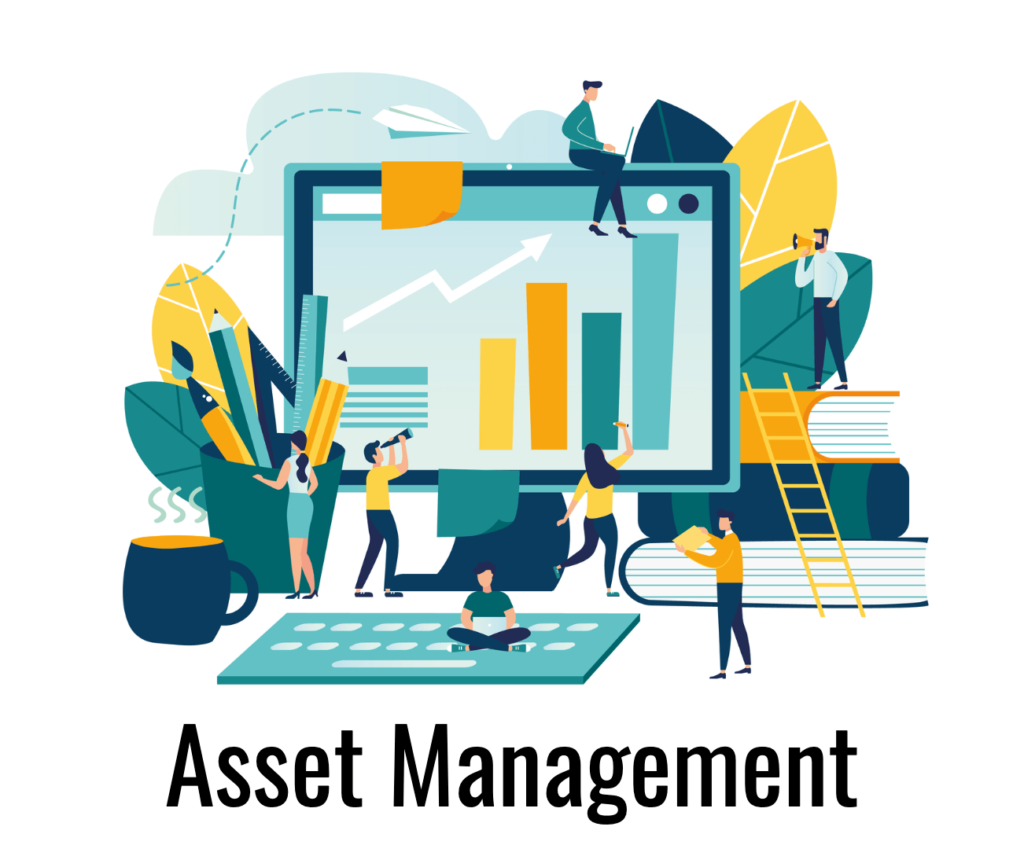In the ever-evolving world of finance, asset management has emerged as a cornerstone for individuals and organizations seeking to optimize their financial resources. Effective asset management involves a meticulous approach to acquiring, maintaining, and growing various types of assets, ranging from financial instruments to real estate and intellectual property. In this comprehensive guide, we will delve into the intricacies of asset management, exploring its significance, strategies, challenges, and best practices, all while ensuring a high-performing SEO structure to facilitate easy discovery and understanding.

Understanding the Essence of Asset Management
Asset management encompasses a systematic process of overseeing, preserving, and enhancing an entity’s assets to achieve financial objectives. Whether you’re an individual investor, a company, or an institution, asset management is the art of making informed decisions to maximize returns while minimizing risks. This practice involves not only selecting the right assets but also understanding their lifecycle, performance, and potential.
Key Aspects of Asset Management
- Asset Allocation: Proper allocation of assets across different categories is a fundamental step in managing wealth. A well-diversified portfolio balances the risk and return potential, helping investors navigate the unpredictable nature of financial markets.
- Risk Management: Effective asset management incorporates risk assessment and mitigation strategies. By understanding the risk associated with different asset classes, managers can adopt strategies to protect capital and optimize returns.
- Performance Evaluation: Continuous monitoring of asset performance is crucial. Analyzing historical data and trends helps identify underperforming assets and potential opportunities for growth.
- Strategic Planning: Asset managers develop and execute strategies aligned with financial goals. Whether it’s income generation, capital appreciation, or risk aversion, a well-defined plan is paramount.
Strategies for Effective Asset Management
- Diversification: The age-old adage “Don’t put all your eggs in one basket” rings true in asset management. Spreading investments across various asset classes, industries, and geographical regions reduces the impact of poor performance in a single area.
- Risk-Return Tradeoff: Asset managers must strike a balance between potential returns and associated risks. High-risk assets might offer greater returns, but they come with a higher chance of loss.
- Long-Term Perspective: Successful asset management often involves a long-term perspective. Short-term market fluctuations should not deter managers from adhering to their strategic plans.
- Active vs. Passive Management: Asset management can be active, involving frequent buying and selling, or passive, where investments are held for the long term. Both approaches have their merits and suit different investment philosophies.

Challenges in Asset Management
- Market Volatility: Financial markets are inherently volatile, making it challenging to predict asset performance accurately. Effective asset managers need to anticipate and respond to market fluctuations.
- Regulatory Changes: Evolving financial regulations can impact the management and reporting of assets. Staying informed and adapting strategies accordingly is crucial.
- Behavioral Biases: Investors often fall victim to behavioral biases like herd mentality or emotional decision-making. Effective asset managers need to help clients overcome these biases to make rational investment choices.
- Uncertain Economic Conditions: Economic shifts can impact the performance of various assets. Asset managers need to adapt strategies to accommodate changing economic landscapes.
The Role of Technology in Asset Management
In the digital age, technology has revolutionized asset management. Fintech innovations provide tools for portfolio analysis, risk assessment, and automated trading. Robo-advisors, powered by artificial intelligence, offer personalized investment advice based on individual risk profiles and goals. Additionally, blockchain technology is enhancing transparency and security in asset management transactions.
Sustainability and ESG Factors in Asset Management
Environmental, Social, and Governance (ESG) criteria are increasingly integrated into asset management strategies. Investors are not only seeking financial returns but also aligning their investments with companies that demonstrate ethical practices and sustainable initiatives. ESG considerations are driving a shift toward responsible investing that benefits both portfolios and the greater good.

Choosing an Asset Management Partner
For individuals or organizations seeking professional asset management services, choosing the right partner is essential. Consider the following factors:
- Experience: Look for asset managers with a proven track record and experience in managing assets in various market conditions.
- Transparency: A trustworthy asset manager should provide clear and transparent reporting on portfolio performance and fees.
- Client-Centric Approach: An asset manager who listens to your financial goals and tailors strategies accordingly is invaluable.
- Technology Integration: An asset manager who utilizes technology for data analysis and strategy optimization can offer an edge in the rapidly evolving financial landscape.
In Conclusion: Navigating the Path to Financial Success
Asset management is a dynamic and multifaceted discipline that plays a pivotal role in shaping financial outcomes. Whether you’re an individual investor seeking to grow your wealth or a corporation managing a diverse portfolio, mastering asset management requires a combination of strategic thinking, risk management, and adaptability to changing market conditions.
By embracing diversification, informed decision-making, and leveraging technology, asset managers can help clients achieve their financial objectives while mitigating risks. The ever-evolving nature of the financial landscape demands ongoing learning and adaptation, but with a solid foundation in asset management principles, you can confidently navigate the journey toward financial excellence.






















Discussion about this post